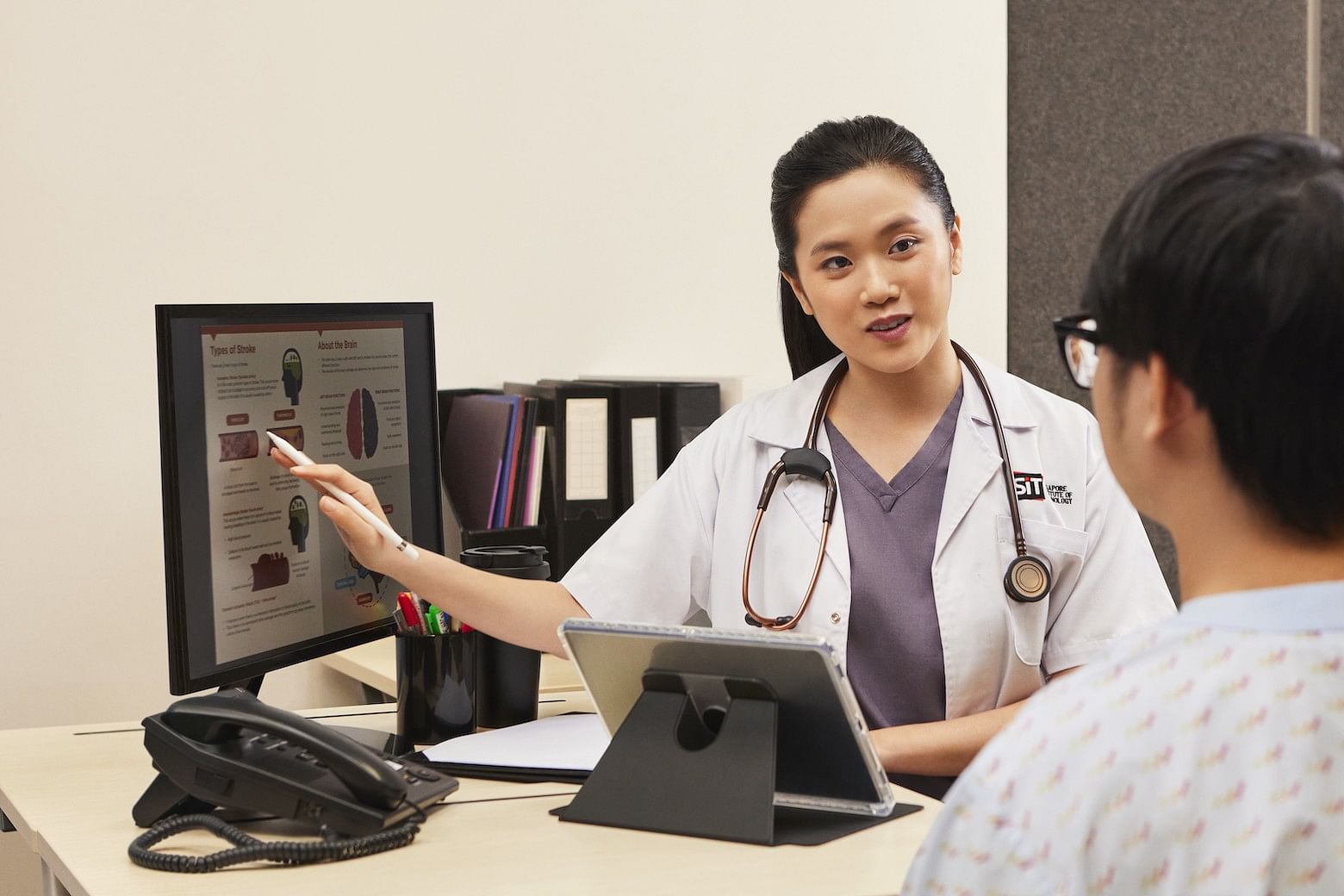Q: My son is in secondary school and is keen to pursue a career in nursing. While we’re supportive, how can we be sure that he’s making the right choice?
A: A career in the healthcare sector is a meaningful and noble pursuit, with a wide range of growth opportunities, says Professor John Thong, deputy president (academic) and provost at the Singapore Institute of Technology (SIT).
Nursing, in particular, is one of the most in-demand jobs, according to Ministry of Manpower data released last December.
Prof Thong adds that nursing played a vital role in supporting the healthcare system during the Covid-19 pandemic. The demand for nurses remains crucial, especially in light of Singapore’s rapidly ageing population.
By 2030, one in four Singaporeans will be aged 65 and above, said Health Minister Ong Ye Kung in a 2022 parliamentary session. The Ministry of Health estimated that about 82,000 nurses, allied health professionals and support care staff would be needed by then, up from the 58,000-strong workforce in 2022.
Q: A nursing diploma or degree is required to become a registered nurse, but what is the difference?
A: While both pathways typically take three to four years to complete, deciding between the two depends on your career aspirations.
Only certain nursing diploma or degree courses are accredited by the Singapore Nursing Board (SNB). These are offered by Nanyang Polytechnic, Ngee Ann Polytechnic, the National University of Singapore (NUS) and SIT.
“You can be a registered nurse as soon as you attain a nursing diploma or degree,” says Prof Thong.
Generally, nurses can only receive specialised training, either through advanced diplomas or postgraduate programmes after two to four years of working experience in a healthcare setting. There are over 15 areas to specialise in, such as emergency, critical care, paediatrics, peri-operative, gerontology and medical-surgical nursing.
“If your goal is to pursue research, management, education or advanced specialist roles, you should eventually plan to complete a master’s programme,” says Prof Thong.
Currently, only NUS and SIT offer such master’s programmes in Singapore. NUS’ Master of Nursing programme is designed for nurses with a nursing degree, and at least five years of clinical experience.
SIT offers a streamlined and accelerated pathway for undergraduates with its integrated Bachelor of Science in Nursing – Master of Science in Nursing (BSN-MSN) programme, says Prof Thong.
Launched last month during its 2024 admissions exercise, the BSN-MSN is a five-year, through-train programme that equips students with advanced and specialised skill sets to pursue different nursing career pathways.

The bachelor’s component takes three years, followed by two years for the master’s.
The BSN-MSN programme was developed in collaboration with SingHealth to design a robust, practice-oriented curriculum that closely integrates academic learning and clinical residency.
“It will nurture a new calibre of nurses who will be rigorously trained across a spectrum of clinical settings and be ‘practice-ready’ through authentic learning in actual work environments,” says SingHealth’s group chief nurse, Adjunct Professor Tracy Carol Ayre.
SIT is the only university in Singapore to offer this integrated programme, which also accepts mid-career applicants with no prior qualifications in nursing.
“It will significantly reduce the amount of time taken to train specialised nurses, as speciality training is incorporated into the master’s portion of the programme,” says Prof Ayre.
She explains that nurses who receive advanced education in a specialisation are well-equipped with the knowledge and skills to provide care for patients with more complex conditions.
With their specialised know-how, they will be able to guide less experienced nurses, and nurses who have not undergone specialisation training within the field of practice.
Q: How do nursing programmes balance learning and practical experience?
A: All SNB-accredited pre-registration nursing programmes include clinical placements, where students must undergo a minimum of 1,280 hours, or 32 weeks in various public healthcare disciplines.
“Clinical placements constitute a vital component of nursing education, offering invaluable hands-on experience in real healthcare settings,” says Prof Thong.
He explains that the bachelor’s portion of SIT’s nursing programme is based on the term-in-term-out structure that allows students to alternate their time between the university and a clinical residency in a SingHealth institution every academic year.
Students will undertake modules on campus over one to two trimesters, followed by a trimester of clinical residency, where they will apply their knowledge and skills in actual clinical settings.
The master’s portion adopts a work-study model, and currently offers four areas of specialisation: medical/surgical nursing, high acuity care nursing, peri-operative nursing and community nursing.
Designated days are allocated for on-campus learning, with the remaining days dedicated to returning to the workplace to acquire practical experience and apply theoretical knowledge to real-world scenarios.
“It is designed for a seamless transition to postgraduate studies, and to shorten the time needed to qualify for speciality training programmes as compared with currently available nursing programmes,” says Prof Thong.
In partnership with Singapore Institute of Technology

